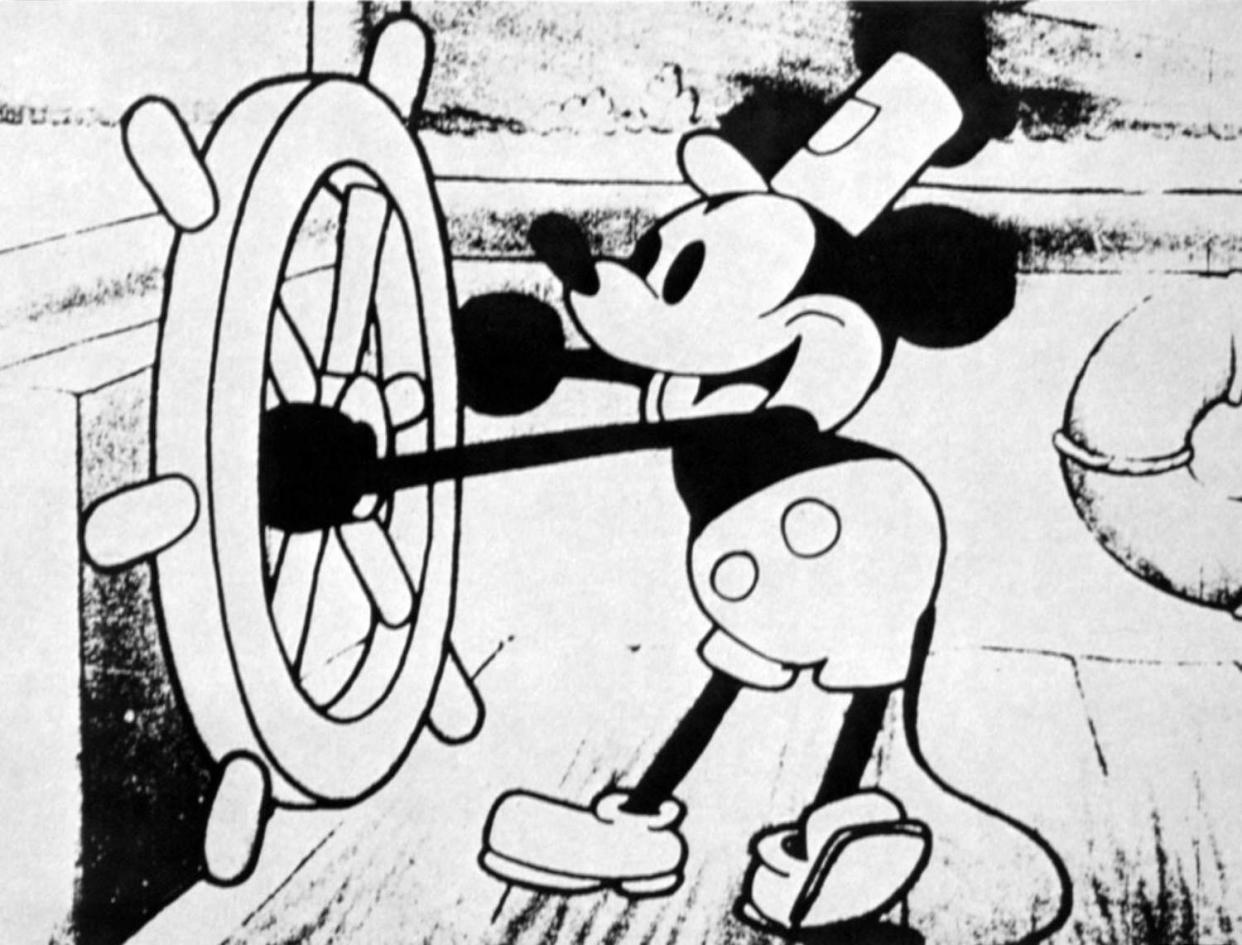Mickey Mouse copyright expiration inspires horror movies, video games and memes

Mickey Mouse will appear in new, non-Disney creative works after 95 years of copyright protection of the character expired on Jan. 1. With this, early versions of Mickey Mouse are now part of the public domain and non-Disney creators can use them in their own for-profit works.
Just in the last two days, independent video game creators and film directors have announced two horror movies and a video game featuring the character, while memes are spreading online showing Mickey in absurd and inappropriate scenes, including nautical accidents and terrorist attacks.
The quick capitalization on Mickey’s updated copyright status is the most recent example of how iconic pieces of intellectual property can be quickly remixed and recycled in the digital age for art and profit.
1928’s “Steamboat Willie” and “Plane Crazy” were the first two Walt Disney Animation releases to feature Mickey and Minnie Mouse, and the former was the first moving picture synced to sound. The characters were first protected under U.S. copyright law for 50 years, then Disney campaigned for and received extensions.
As Disney’s grip on the intellectual property rights surrounding the earliest versions of Mickey Mouse have come to an end, creators have poked fun at the numerous possibilities that could come from the change.
As with previous notable public-domain entries, horror and violence characterized the first announced works utilizing public-domain Mickey. Writer Simon Phillips posted a trailer for “Mickey’s Mouse Trap” on YouTube on Jan. 1, which features scenes from “Steamboat Willie” as well as the tongue-in-cheek tagline “The Mouse is out.” Horror parody director Steven LaMorte also announced a second untitled “Steamboat Willie” horror movie, Variety reported.
Independent video game studios also have planned releases that feature “Steamboat Willie” Mickey Mouse. A company called Nightmare Forge Games announced “Infestation: Origins,” a horror game with the character slated for 2024. A company called Fumi Games already had a game in the style of classic animation in the works called “Mouse,” with a gameplay trailer released last month. The trailer shows the point of view of a white-gloved cartoon mouse — a nod to the fact that it isn’t “Steamboat Willie” Mickey, because he didn’t get his white gloves until a year later.
Jennifer Jenkins, the director of the Duke Center for the Study of the Public Domain, wrote in a blog post Monday that Disney has become a symbol of corporate lobbying for longer copyright periods, while Disney itself has used public-domain works and characters to create many of its beloved animations. The tension appears to have fueled absurd memes about the copyright change.
Online creators have riffed on Disney’s reputation for tight brand control in memes that place “Steamboat Willie” Mickey in shocking situations, including the 9/11 terrorist attacks, the ship that blocked the Suez Canal in 2021, and the OceanGate submersible that crumpled underwater in 2023, killing five people. Other memes take a jab at Disney directly, like an “I am the captain now” meme that quotes the pirate hijacking scene in the 2013 film “Captain Phillips.”
Many memes and other forms of parody featuring Disney characters were previously allowed under fair use, which is how shows like “The Simpsons” have produced skits that feature characters who look like Mickey Mouse.
Jenkins also wrote that, while some newer Mickey Mouse character traits (like his high-pitched voice) aren’t likely able to be copyrighted, it’s a less risky bet for creators to repurpose the version of Mickey that has become public domain — the original.
The Walt Disney Company didn’t immediately respond to a request for comment.
